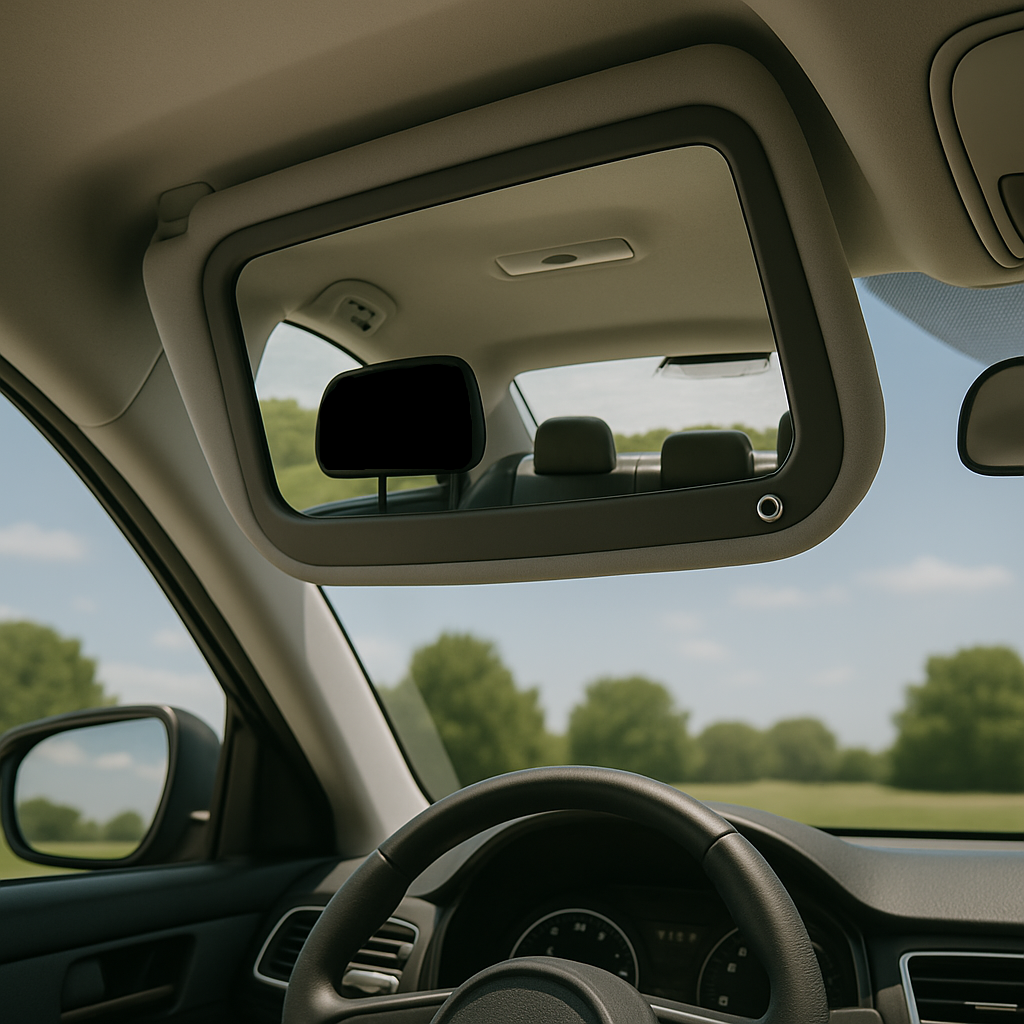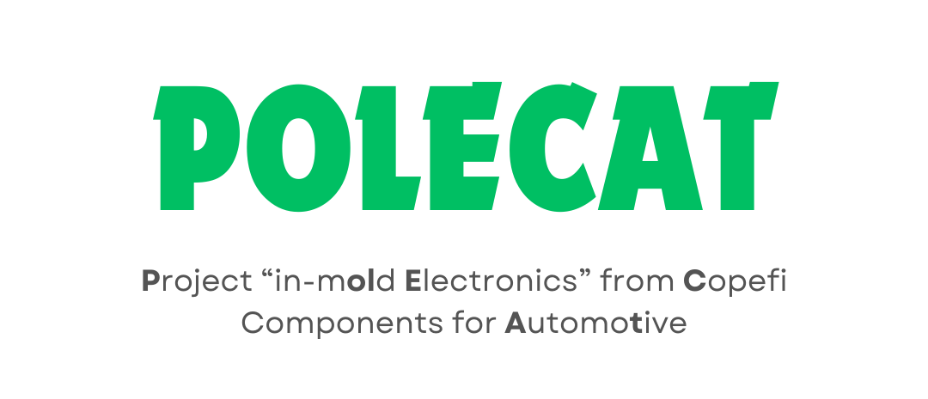



POLECAT is a project developed in collaboration between PIEP and COPEFI, a company specializing in manufacturing components for the automotive sector. This project is a response to the growing need for innovation and modernization in the automotive industry, focusing on integrating new electronic functionalities into car components. To this end, this project aims to adopt advanced production processes, with a special focus on using In-Mold Electronics (IME) technology, which combines injection molding and printed electronics in a single process, and also the use of Smart Glass technology.
One of the main innovations envisaged in this project is the production of a frame for inserting the car’s sun visor mirror. By integrating Smart Glass and IME technologies, the aim is to create an innovative system that allows the transparency and opacity of the mirror to be altered using a capacitive touch sensor integrated into the surface, allowing conventional mechanical buttons to be replaced by tactile interfaces. The addition of this functionality will provide the user with a more intuitive experience and also contribute to the modernization of the vehicle interior by improving the aesthetics of the product.
In recent years, the automotive industry has made continuous progress, driven by the development of more efficient, lightweight, and sustainable solutions. The current trend is to develop multifunctional products that add value to the end user, optimizing production processes and, consequently, reducing the environmental impact caused in the value chain. In this sense, POLECAT arose from the need to adapt to the current reality and aims to develop the aforementioned concept by simplifying the product, reducing the effort involved in assembling and disassembling vehicles by reducing the number of components and multi-materials that make it up. In addition, and line with the European Union’s sustainability requirements, the traditional glass used in the mirror will be replaced by a biobased polymer substrate, which is lighter and significantly reduces the component’s carbon footprint.
The POLECAT project is in line with the sustainability metrics required by the automotive industry. By reducing the number of assembly operations and eliminating the use of multi-materials, the project contributes directly to reducing the consumption of energy and natural resources. The use of more sustainable materials is in line with innovation trends in the automotive industry, contributing to more sustainable mobility and ensuring that the vehicles of the future have an ever smaller carbon footprint.
The solution envisaged in this project allows for a significant advance in the design and functionality of the components. With this integrated approach, POLECAT is positioning itself as a benchmark for innovation in the sector, combining technology, sustainability, and efficiency. By responding to new market demands and anticipating sector trends, this project highlights PIEP and COPEFI’s commitment to developing innovative products that benefit the industry and its consumers. This project thus aims to revolutionize the way automotive components are designed and produced, becoming a benchmark in the sector and opening up new possibilities in the field of mobility.



